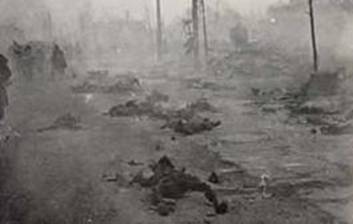Study Guide: Julia Ward Howe
Mother’s Peace Day
People around the world celebrate Mother’s Day at some time each the year, but few know what it really means. The origins of the holiday go back to 1870, when Julia Ward Howe (1819-1910)—an abolitionist and poet who wrote “Battle Hymn of the Republic”—worked to establish a Mother’s Peace Day. Howe dedicated the celebration to the eradication of war, and organized festivities in Boston for years.
Honoring Mothers
In 1907, Anna Jarvis, of Philadelphia, began a campaign to have Mother’s Day officially recognized as a national holiday. Her goal was less to protect husbands and sons from war than to honor motherhood itself.

The Cost of War
Serving Empire
In 1914, in an effort to inspire patriotic fervor among America’s working classes, US President Woodrow Wilson proclaimed Mother’s Day a national holiday, and a “public expression of our love and reverence for all mothers.” However, he was silent about the real purpose of the commemoration. In the heat of WWI, with anti-war activists—and even popular presidential candidates such as Eugene Debbs—imprisoned for daring to express opposition to war, the Mother’s Peace Day was gradually forgotten.
Selling More Stuff
Eager to sell more stuff, capitalists hired a new breed propagandists to use the holiday to sell more stuff. Using techniques pioneered by Edward Bernays, who described the masses as “irrational and subject to herd instinct,” they turne the holiday into today’s trivialized and commercialized celebration of candy, flowers, gift certificates, and lavish meals at restaurants.
The day now bears little resemblance to Howe’ original vision of ending the scourge of war. For what it’s worth, here is her Proclamation as written in 1870:
Mother’s Peace Day Proclamation
Our sons shall not be taken from us to unlearn all that we have been able to teach them of charity, mercy and patience. We women of one country will be too tender of those of another country to allow our sons to be trained to injure theirs.
From the bosom of the devastated earth a voice goes up with our own. It says, “Disarm, disarm! The sword is not the balance of justice.” Blood does not wipe out dishonor nor violence indicate possession.
As men have often forsaken the plow and the anvil at the summons of war, let women now leave all that may be left of home for a great and earnest day of counsel. Let them meet first, as women, to bewail and commemorate the dead. Let them then solemnly take counsel with each other as to the means whereby the great human family can live in peace, each learning after his own time, the sacred impress, not of Caesar, but of God.
In the name of womanhood and of humanity, I earnestly ask that a general congress of women without limit of nationality may be appointed and held at some place deemed most convenient and at the earliest period consistent with its objects, to promote the alliance of the different nationalities, the amicable settlement of international questions, the great and general interests of peace.


